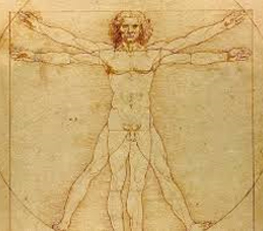(27-06-2018) Teens who nap during the day perform better in school
(Natural News)Young adults who take a nap during the day perform better in school, according to a study published in the journalBehavioral Sleep Medicine.
A team of researchers from the University of Delaware and theUniversity of Pennsylvania looked at the effect of napping during the day on the neurocognitive function in teenagers. In conducting the observational study, the research team measured the midday napping, nighttime sleep duration and sleep quality, and performance on multiple neurocognitive tasks of 368 teenage students in China. The study was funded by theNational Institutes of Health.
During adolescence, a developmental change occurs in their circadian rhythm. The rhythm of teens shifts one to two hours later than the pre-adolescent period. The researchers explained that this delay is biologically driven in adolescents.
“Think about that in a school schedule. Teenagers have to get up early for school. And, with this phase delay of going to bed later, they are at risk for chronic sleep deprivation,†explained Xiaopeng Ji, one of the researchers of the study.
Ji further explained that these teens may experience impaired cognitive function, making it more difficult for them to concentrate in school. In addition, their memory and reasoning ability are also compromised. A circadian dip happens every day from 12 to 2 p.m. And during that period, teenagers are more likely to fall asleep. Unlike schools in the U.S., schools in China let the students maintain their midday napping behavior. Midday napping is a cultural practice in China and it is built into the after-lunch schedule in work and at schools.
The findings of the study revealed that routine nappers, or those who napped five to seven days in a week, had better attention, nonverbal reasoning ability, and spatial memory. The best duration of nap is between 30 and 60 minutes. Study participants who slept between 30 to 60 minutes exhibited better accuracy in attention tasks and faster speed. In addition, the research team advised that taking a nap after 4 p.m. and over-napping must be avoided. A nap that exceeds an hour interrupts the circadian rhythm. The team also found a positive association between midday napping and nighttime sleep. The participants who napped more often were more likely to have a better nighttime sleep. (Related:The many benefits of napping, including how long to snooze to reap the rewards.)
“That’s different than the findings in the United States, where napping may serve as a function to replace sleep lost from the previous night. Consequently, that may interfere with the following night’s sleep,†Ji said.
Types of naps
Naps can becategorized in three different ways:
Planned napping– Also referred to as preparatory napping, planned napping is the kind of nap you take before you actually get sleepy. This method can be used when you intend to stay up later than your normal bedtime or to eliminate the feeling of tiredness you felt earlier.
Emergency napping –This happens when you are suddenly very tired and cannot continue with the activity you were supposed to do. Emergency napping can be used to fight drowsy driving or fatigue while using heavy and dangerous machinery.
Habitual napping– This type of nap is practiced by taking a nap at the same time every day. Young children may fall asleep at around the same time every afternoon or an adult might take a nap after lunch daily.
Read more news stories and studies on how the body works by going toMindBodyScience.news.
Sources include:
ScienceDaily.com
SleepFoundation.org
News
In evidenza
 "L'informazione presente nel sito serve a migliorare, e non a sostituire, il rapporto medico-paziente."
"L'informazione presente nel sito serve a migliorare, e non a sostituire, il rapporto medico-paziente."
Per coloro che hanno problemi di salute si consiglia di consultare sempre il proprio medico curante.

Informazioni utili
-
Ricette a zona
-
Tabelle nutrizionali
-
Tabella composizione corporea
-
ABC della nutrizione






